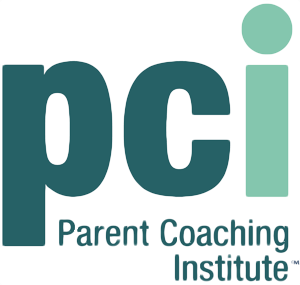Appreciative Inquiry:
A Significant Tool for Effective Parent Coaching

by Gloria DeGaetano,
Founder and CEO of the Parent Coaching Institute
Appreciative Inquiry (AI) has been researched and used successfully in corporations, community organizations, and in some school settings. It has a wonderful track record because the AI process supports positive, long-term change, offering much hope and unleashing new levels of creativity, innovation, and inspiration. The Parent Coaching Institute adapts AI to parent coaching conversations, using its principles (which are in alignment with living systems principles) and its methodology as a basic structure for those conversations. Instead of jumping in to solve the problem directly, AI employs a four-stage process for coach and client to co-create exciting and sustainable solutions:
- Discovery—finding out through well-crafted and careful questions what is presently working in the situation. What is currently giving life to the parents, the children? The family?
- Dream—helping parents articulate a clear vision of what it is they want and to feel the positive emotions and qualities that living in that preferred future with their child would evoke.
- Design—encouraging strategies, ideas, behaviors, parenting practices, reflective exercises, and other applications to help parents design both external and internal activities that would best support fulfillment of their dream.
- Destiny—as a parent's dream emerges into actual lived experience, the role of the coach is to point out the "evidence indicators" that show this is happening, to help the parent gather the qualities and resources to make sure the emerging dream is sustainable, and to acknowledge that deep change has occurred and that the parent is a primary cause of this change.
Each phase may take one to four coaching sessions within a series of weekly coaching sessions lasting over a period of three to four months. In this way, parents begin to value the process they are involved in and come to understand that in living systems such as families, many changes will occur when they are seeded properly and nurtured over time.
Beginning with the Discovery phase harnesses positive energy to solve the problem and keeps parents focused on what they value about their children. It addresses the subtle, but powerful tendency of humans to make the person the problem and not the situation. For instance, when exhausted by discipline problems with a young child, a mother may be dreading to spend time with her son. She may not want to take him out in public. She may use TV more often to keep him quiet. She begins to see her son as "her problem." By seeking the positive qualities in her son and helping this mom begin to appreciate him in new ways, a PCI trained parent coach can help her get out of the energy-draining mind set. As the coach asks careful questions, affirms her, reframes her concerns to bring forth the good in the situation and in her child, she begins to see her son as the loveable, curious, beautiful child he really is. She becomes more hopeful and energized. She observes her child in his daily activities. She responds differently to him. Now she is ready to address his behavior issues in a pro-active and meaningful way that is much more likely to get the results she desires.
Before coach and parent start discussing strategies to help the child's behavior (we often find that the behavior has changed for the positive at this point because the mother is now responding more authentically to her child's needs), we begin the Dream phase. Here we ask her to picture an ideal day, if her son were acting and doing what she wanted. What would it look like? What would it feel like? Often during the Dream phase a parent may get an unexpected insight. This mother finds that in her ideal day, she would have a few short breaks to have tea and gather herself. She realizes that she isn't giving herself needed breaks, that she is tired all the time, and wants the coach to help her find out ways to do this. In living systems there is usually growth that may surprise and often an element of uncertainty. The parent and the coach can't be sure what issues will begin to come to the surface, but as they work together, usually other situations arise that the parent wants to change in addition to the original challenge that initiated the coaching in the first place.
The Dream phase is critical because we cannot achieve our goals unless we have the image of goals at the forefront of our minds. It is true that "What we pay attention to grows." This is another PCI principle, based on brain research and extremely important when considering the power of the positive image to reshape current and future realities. Indeed, the positive image of the future is a critical component of not only changing family life, but society as well. As parents learn to hold mental models of their preferred future, they also begin to include more and more systems in their positive images—the ideal school, the type of teachers that would support the child's learning, the playmates that would be trusted friends, etc. The dreaming of a preferred future naturally expands to encompass community and cultural ideals.
I believe that the ability to imagine an ideal future is a necessary parenting skill in our current industry-generated culture. We need our own imagination to counter thousands of trivial images wedged into our daily lives by mass media. We can more readily attain what is meaningful to us by imagining our own focused mental models, generated from our true needs and desires, not imposed upon us by an industry. Frankly, if we are unable to hold images of what we want our future to look like, we will give away our dreaming capacities to corporate conglomerates, as well as throw our entire future into their hands.
The final phase of AI, the Destiny phase seeks to support the parents in collecting evidence of the dream emerging and in celebrating the goals accomplished. This is often a phase of jubilant announcements of positive changes and considerable gratitude towards the coach. But the coach knows and reminds the parent that it was the parent, after all, that has made all the achievements. With full participation and willingness, the parent accomplishes much more than initially expected and is filled with energy, joy, and hope at the outcome. The coach has been a catalyst for transformational change by employing powerful positive change strategies, using Appreciative Inquiry as the basic structure. Like "playing jazz," once the basic structure of AI is understood, the coach can adapt it by integrating past knowledge and experiences. Appreciative Inquiry can be a powerful tool in the hands of all professionals who have been educated to support families and who willingly apply and trust its dynamic process.
Copyright © 2011 Gloria DeGaetano, all rights reserved.
About Gloria DeGaetano
Gloria DeGaetano is the founder and CEO of The Parent Coaching Institute, the originator of the parent coaching profession and a speaker and author on issues related to parenting well in a media/digital age.
An acclaimed keynote speaker, Gloria is a sought-after favorite for major national and international conferences because she is a recognized leader in family support, and media/digital literacy who provides very specific and practical tools for parents to successfully navigate the stresses of modern day culture. An innovator in parent education, Ms. DeGaetano often trains parent educators and agency staff on how to best help moms and dads in our digital age which often divides family life, making it even more difficult for healthy parent-child relationships. Her popular trainings are tailored to the specific needs of participants, resulting in positive outcomes for the agencies and the parents they serve.
Ms. DeGaetano, a best-selling author, has written Screen Smarts: A Family Guide to Media Literacy; Stop Teaching Our Kids to Kill: A Call to Action Against TV, Movie, and Video Game Violence (with Lt. Col. Dave Grossman), and manuals for parent professionals. Her latest book Parenting Well in a Media Age, has won the 2007 i-Parenting Media Award for excellence. Ms. DeGaetano's books and articles have been translated into Spanish, German, Danish, Romanian, Korean, Chinese, and Turkish. Ms. DeGaetano's ideas and articles have appeared in numerous publications including McCall's American Baby Magazine, The Boston Globe, the American Academy of Pediatrics Newsletter, and Catholic Faith and Family Magazine.
Ms. DeGaetano has appeared on The Today Show to discuss Baby Einstein videos and has been interviewed on many national radio shows, including NPR's Fresh Air and Marketplace, and The Tavis Smiley Show. Ms. DeGaetano has been featured in television documentaries produced by ABC and the Canadian Broadcast Corporation. The Parent Coaching Institute has been featured on news programs by NBC affiliates throughout the country and in newspapers and magazines, including Newsweek, Parents Magazine, The Chicago Tribune, The New York Times, The Wall Street Journal, La Tribune, The London Times, The Observer, Better Homes and Gardens, Redbook, Ladies' Home Journal, American Way of American Airlines, The Chicago Daily Herald, and Spirit Magazine of Southwest Airlines.
